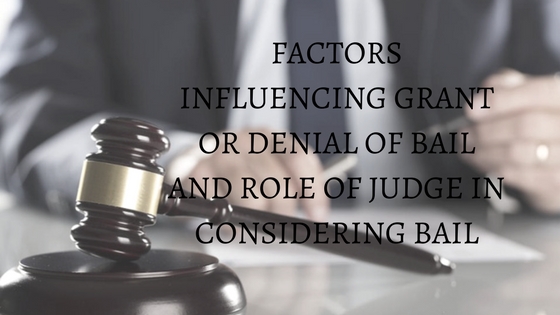Aapka Consultant Judgment Series- In this series, we are providing case analysis of Landmark Judgments of Hon’ble Supreme Court of India.
Sanjay Chandra v. CBI
JUDGES: G.S. Singhvi, H.L. Dattu
2011 (13) SCALE 107: (2012) 1 SCC 40
Date of decision: 23/11/2011
FACTS:-
The allegations against accused Sanjay Chandra are that he entered into criminal conspiracy with accused A. Raja, R.K. Chandolia and other accused persons during September 2009 to get UAS licence for providing telecom services to otherwise an ineligible company to get UAS licenses.
The appellants are facing trial in respect of the offences under Sections 420-B, 468, 471 and 109 of Indian Penal Code and Section 13(2) read with 13(i)(d) of Prevention of Corruption Act, 1988. Bail has been refused first by the Special Judge, CBI, New Delhi and subsequently, by the High Court. Both the courts have listed the factors, on which they think, are relevant for refusing the Bail applications filed by the applicants as seriousness of the charge; the nature of the evidence in support of the charge; the likely sentence to be imposed upon conviction; the possibility of interference with witnesses; the objection of the prosecuting authorities; possibility of absconding from justice. Aggrieved by the same, the appellants are before the Hon’ble Apex Court in these appeals.
ISSUE:-
What all factors should be taken into consideration while granting the bail to an accused?
JUDGMENT:-
Hon’ble Apex Court noted that, it has been laid down from the earliest times that the object of bail is to secure the appearance of the accused person at his trial by reasonable amount of bail. The object of bail is neither punitive nor preventative. Deprivation of liberty must be considered a punishment, unless it can be required to ensure that an accused person will stand his trial when called upon.
Hon’ble Court held that seriousness of the charge is, no doubt, one of the relevant considerations while considering bail applications but that is not the only test or the factor: The other factor that also requires to be taken note of is the punishment that could be imposed after trial and conviction, both under the Indian Penal Code and Prevention of Corruption Act. Otherwise, if the former is the only test, we would not be balancing the Constitutional Rights but rather “recalibration of the scales of justice.” The provisions of Cr.P.C. confer discretionary jurisdiction on Criminal Courts to grant bail to accused pending trial or in appeal against convictions, since the jurisdiction is discretionary, it has to be exercised with great care and caution by balancing valuable right of liberty of an individual and the interest of the society in general.
In the present case, both the Courts have refused the request for grant of bail on two grounds: The primary ground is that offence alleged against the accused persons is very serious involving deep rooted planning in which, huge financial loss is caused to the State exchequer; the secondary ground is that the possibility of the accused persons tempering with the witnesses. In the present case, the charge is that of cheating and dishonestly inducing delivery of property, forgery for the purpose of cheating using as genuine a forged document. The punishment of the offence is punishment for a term which may extend to seven years. It is, no doubt, true that the nature of the charge may be relevant, but at the same time, the punishment to which the party may be liable, if convicted, also bears upon the issue. Therefore, in determining whether to grant bail, both the seriousness of the charge and the severity of the punishment should be taken into consideration. The grant or refusal to grant bail lies within the discretion of the Court. The grant or denial is regulated, to a large extent, by the facts and circumstances of each particular case. But at the same time, right to bail is not to be denied merely because of the sentiments of the community against the accused. The primary purposes of bail in a criminal case are to relieve the accused of imprisonment, to relieve the State of the burden of keeping him, pending the trial, and at the same time, to keep the accused constructively in the custody of the Court, whether before or after conviction, to assure that he will submit to the jurisdiction of the Court and be in attendance thereon whenever his presence is required.
Hon’ble Court finally came to conclusion that “We are conscious of the fact that the accused are charged with economic offences of huge magnitude. We are also conscious of the fact that the offences alleged, if proved, may jeopardize the economy of the country. At the same time, we cannot lose sight of the fact that the investigating agency has already completed investigation and the charge sheet is already filed before the Special Judge, CBI, New Delhi. Therefore, their presence in the custody may not be necessary for further investigation. We are of the view that the Appellants are entitled to the grant of bail pending trial on stringent conditions in order to ally the apprehension expressed by CBI.” In the result, the appellants were released on bail on their executing a bond with two solvent sureties, each in a sum of 5 lakhs to the satisfaction of the Special Judge, CBI, New Delhi.
HELD:-
Hon’ble Court ruled that, seriousness of the charge is, no doubt, one of the relevant considerations while considering bail applications but that is not the only test or the factor. The other factor that also requires to be taken note of is the punishment that could be imposed after trial.
To Get Legal Opinion from Advocates/ Legal Experts, Please click here
To Get Legal Opinion from Retired Hon’ble Judges, Please click here












